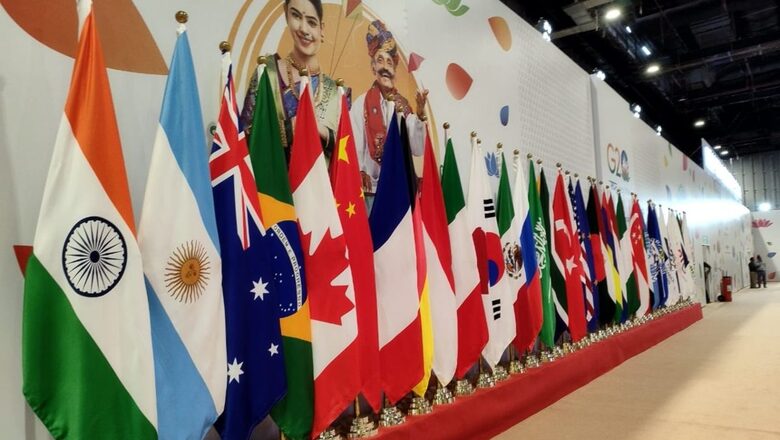
views
Education and literacy serve as pivotal indicators of societal development, playing a central role in enhancing a country’s overall socio-economic progress and contributing to global collaborative growth. With the recent embrace and adoption of the G20 New Delhi Leaders’ Declaration by the G20 leaders, we have taken a significant stride towards prioritising education on a global scale. This declaration, described as “historic and groundbreaking”, achieved unanimous consensus on its very first day.
In alignment with previous G20 declarations, this new commitment underscores the dedication to providing inclusive, equitable, and high-quality education and skills training for all, including those in vulnerable situations. However, mere declarations alone will not suffice, given that we have just seven years left to meet Sustainable Development Goal 4 (SDG-4) under the 2030 Agenda. We must now shift our focus towards proper implementation and generating heightened political attention and actionable strategies to ensure long-term educational outcomes for current and future generations.
The Critical Role of Implementation
Despite substantial strides in recent years, the Indian education system still confronts significant infrastructure challenges, particularly in rural areas. Moreover, India currently holds the 112th rank among the 17 Sustainable Development Goals established as part of the 2030 agenda by 192 United Nations member states. According to an assessment by the World Bank, approximately 50 per cent of children in India lack foundational learning, and by the time they reach Grade 5, they struggle to grasp age-appropriate curriculum.
The G20 declaration supplements India’s ongoing efforts over the past decade. The nation has made notable progress in pursuing the goal of ‘Education for All,’ with various policies and programs aimed at delivering quality education to all children, regardless of their socio-economic backgrounds. The National Education Policy (NEP) 2020 further placed a stronger emphasis on creating a comprehensive framework for primary, secondary, higher, and vocational education.
However, moving forward, the emphasis should be on quality rather than quantity. Mere attendance in school does not equate to effective learning. India is grappling with a learning crisis, with many children going to school but reaching adulthood without acquiring even the most fundamental skills. While numerous schemes and policies are in place, it is now imperative to ensure their effective on-ground implementation.
Government investment in education is on the decline, while parental expenditure on education in India is increasing. Simultaneously, the quality of education is deteriorating, and a significant number of students rely on private coaching. The pressing requirement of the moment is sufficient funding from both Central and state governments to ensure high-quality education, particularly in the realm of adult education. It is widely acknowledged that the targets set by SDG-4 are ambitious, and India faces numerous challenges in its pursuit of these goals. Inadequate financial resources allocated by the government to the education sector stand as one of the primary hurdles. It is hoped that the declaration’s renewed focus on education will prompt increased funding to bridge this gap.
Teacher training is another critical factor. The declaration emphasises support for educational institutions and teachers to keep them aligned with emerging trends and technological advancements. As technology continues to play a larger role in the Indian education system, adequately training teachers to utilise it for effective education delivery becomes paramount. The quality of an education system hinges largely on the quality of its educators. Mere investment in technology hardware and software, without well-prepared educators, will not resolve the underlying issues.
The Indian education system requires a practical and meticulously executed roadmap to reach the desired benchmarks. The path ahead may be challenging, but it remains attainable. The G20 Declaration is another stone in this direction. With the strategic utilisation of technology, which is a true game-changer, we can strive for a future where Indian education becomes an inspiration for nations worldwide. In the years to come, we hope to witness a transformed landscape of Indian education, one that serves as a beacon for other G20 nations to emulate. Achieving this vision hinges on our ability to harness the transformative potential of technology and, most importantly, our unwavering commitment to quality education for all.
Mahek Nankani is Lead, Growth & Partnerships at The Educational Initiatives. Views expressed in the above piece are personal and solely that of the author. They do not necessarily reflect News18’s views.




















Comments
0 comment